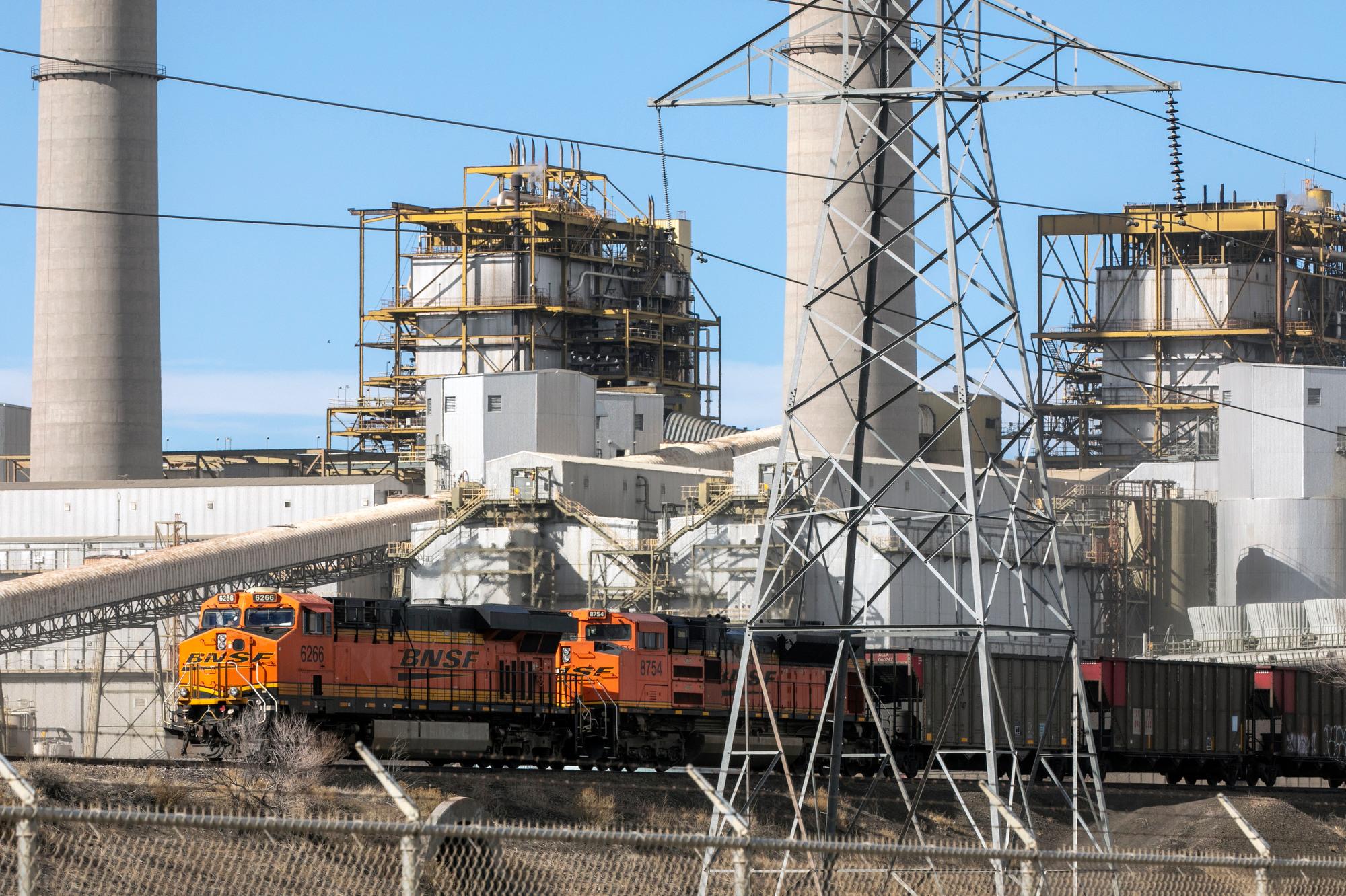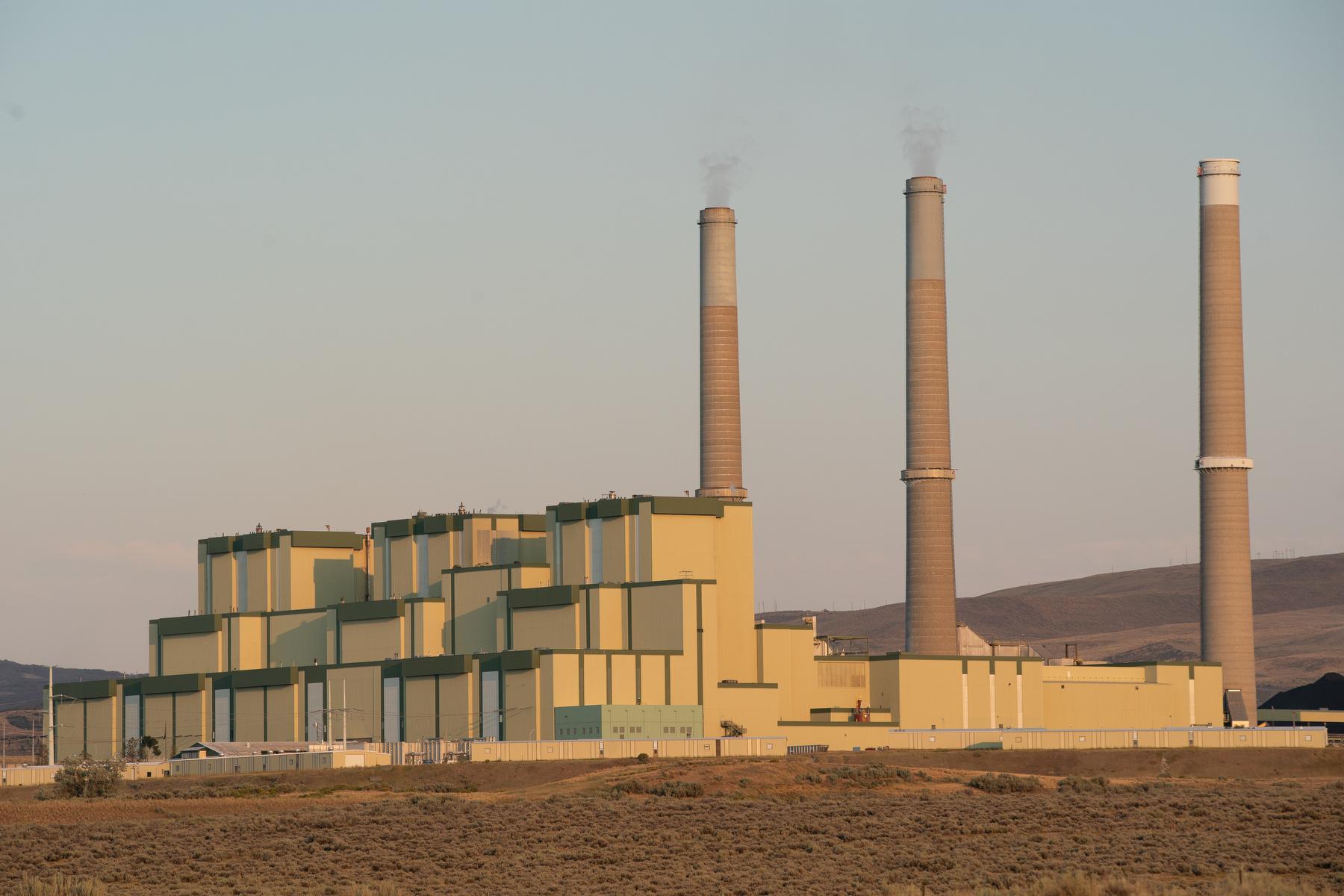
Updated at 2:38 p.m. on Thursday, Sept. 11, 2025.
Pueblo County has spent years pushing back against state efforts to close Xcel Energy’s Comanche Generating Station, an often unreliable coal-fired power station and one of the state's largest sources of climate-warming emissions.
It is also a major employer and economic driver for the county, generating at least $31 million in property taxes each year.
Now, some county officials want the Trump administration to override state utility regulators and keep the power plant complex open.
In a document filed last Friday to the Colorado Public Utilities Commission (PUC), county officials said they were “in the process of” appealing the coal plant closures to President Trump and Chris Wright, the head of the Department of Energy and a former Colorado fracking executive.
Frances Koncilja, who owns a law firm and is a former PUC commissioner, and Cynthia Mitchell, a Pueblo County attorney, wrote the filing on behalf of county commissioners. They said that the two coal-fired units in the Comanche complex are needed until new power sources — like gas plants or even a nuclear facility — are built in Pueblo.
Closing coal plants and switching to renewable energy is a key part of the state’s strategy to reach ambitious climate goals. But communities also risk losing high-paying jobs and millions of dollars in property taxes once they shutter.
Colorado lawmakers passed two laws in 2019 requiring the state to prepare communities for a transition away from fossil fuels, and for utilities like Xcel to submit detailed plans on closing their coal-fired plants.
In October 2024, Xcel submitted its “just transition” plan for Pueblo to the PUC. The plan aims to build a massive amount of new renewable energy, while also making payments to Pueblo County for tax revenue lost by shuttering the complex.
The PUC approved portions of Xcel’s larger, statewide “just transition” plan for power sources last month, though key details, like how much it will cost and how many new projects will be built, will still take months to iron out.
It’s clear now, though, that Pueblo County has soured on that plan.
A fraught transition plan
The PUC’s approach to closing power plants and transitioning to cleaner power has long been contentious for Pueblo County. In their filing, Koncilja and Mitchell detailed a litany of complaints about how the PUC – in their view – hasn’t adequately considered alternative energy options for Pueblo’s economic future.
“Perhaps this Commission is biased against Pueblo because it voted for President Trump twice,” the filing read, intimating that the PUC was politically motivated.
The PUC did not respond to the county’s assertions, but said it would address the filing during a meeting on Thursday.
The Comanche Station has two coal-fired power plants: Comanche 2 and 3. Both burn coal to provide electricity, but the power doesn’t stay in Pueblo. It’s instead sent to Denver and other Front Range cities.
While Comanche 2 is slated to close this year, Comanche 3, and all of the state’s coal-fired power plants, will close by 2031 at the latest.
The county has previously agreed they must be shuttered, but now wants more time for new energy projects to be built, according to the filing.
The county also wrote that the PUC failed to meaningfully consider other technologies, like advanced nuclear energy, to replace coal. Building new nuclear projects is often costly and could take years to complete.
“If Pueblo cannot obtain a Just Transition from the participants in this proceeding and the state of Colorado, perhaps President Trump and Secretary Wright can assist Pueblo,” the county wrote in its filing.
The Department of Energy did not respond to a request for comment.
But Miles Lucero, a Pueblo County commissioner, said he was frustrated by the attorneys’ proposal to appeal to Trump to keep the plants open. He said that while he’s been disappointed with the PUC process, the county has not yet formally asked the Trump administration to delay the closure of the Comanche complex.
“We have not in any way authorized a formal request for the federal government to come in and override local and state decisions that have been in the works for years,” Lucero said in a statement.
A national shift back to coal
The county may find a willing audience in the federal government to keep the lights on at Comanche.
This year, the Department of Energy has invoked federal emergency powers to order coal-fired power plants in Pennsylvania and Michigan stay open past their closing dates. In July, the U.S. Environmental Protection Agency indicated it would reject Colorado’s plan to close its remaining coal-fired power plants.
The head of Colorado Springs Utilities also wants to delay the closure of the Ray D. Nixon plant, the city’s last remaining coal-fired plant, and has made appeals to the Trump administration.
But keeping coal plants open can exacerbate air pollution and saddle Coloradans with higher energy bills to upkeep aging facilities.
“Pueblo has so much potential to become a clean energy hub,” Theresa Trujillo, a board member of El Movimiento Sigue, an advocacy group, said in a statement.
"Forcing Comanche to keep running would be a horrible mistake, a giant step backwards,” she said.
Editor’s note: A previous version of this story misstated the name of an advocacy group. It has been updated.






